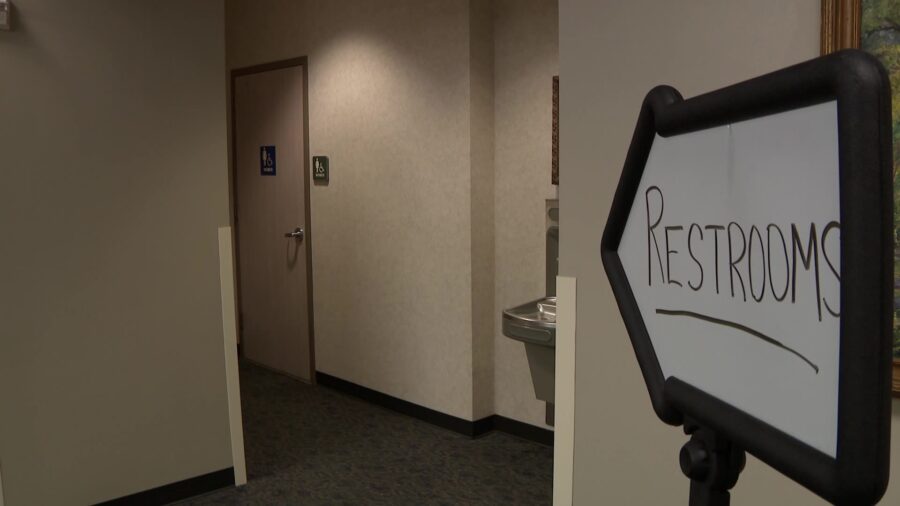SALT LAKE CITY — The Utah State Board of Education has made it clear that it will be up to school districts to decide how to implement a new bathroom law in their schools that requires students to use restrooms based on their sex assigned at birth.
At issue was the Salt Lake City School District's enforcement of language in the law that requires school districts to “inform” students about which restrooms to use.
“[The Utah State Board of Education] does not provide guidance or direction, and USBE has not been directed by the Legislature to issue guidance or direction. [districts] Regarding this bill. [Districts] They will determine how best to communicate the bill's requirements to students and families in their respective communities,” Ryan Bartlett, USBE's director of strategic communications, said in a statement.
The board issued the above statement after some parents in the Salt Lake School District planned a “dance protest” during a classroom presentation on the subject at Emerson Elementary School. Homeroom was scheduled to announce new guidelines this week.
The Salt Lake City School District said it wants students to get a consistent message, but Kristen Kinjo, who has three boys in the district, said she doesn't like the public nature of PowerPoint presentations during classes. She said it was a problem for her.
“You don't want someone else to tell you that you're a girl or a boy. If you're transgender or non-binary, you don't exist,” Kinjo said. “For most children, the only unisex bathroom is the teacher's bathroom,” Kinjo says. “That means kids have to choose between coming out or going to a bathroom that other kids aren’t forced to use.
The new law states that biological males in “government-owned or controlled” facilities will use the men's restroom, and biological females will use the women's restroom, unless they have fully transitioned and changed their birth certificate. It is mandatory to use it. It defines men and women by their individual reproductive organs.
The bill would also require new buildings to have more single-occupancy spaces and consider the feasibility of renovations. It also requires schools to develop a “privacy plan” for students.
The district later reversed plans to make the announcement in classrooms and said it would now reach out to families directly affected by the law.
“Rather than holding a homeroom presentation to all students next week, our school will be reaching out directly to affected families to help students and their families affected by changes in state law regarding restroom use plan. “We plan to ensure that students have the information they need to meet both the needs of our students and the requirements of the law,” the district said in an email to parents.
“I don't think there's a good way to enforce a bad law, a law that is harmful to the mental health of Utah's most vulnerable people,” Kinjo said.
The law's sponsor, Rep. Kela Birkeland (R-Morgan), told KSL-TV that the law is “a common sense and age-appropriate way to communicate how school districts can use this law.” It is the intent of Congress to decide whether to enforce it.” We consider the needs of all students. ”
Kinjo hopes her local district can address transgender children's use of the bathroom in a less public way.
“I want children to know that there are adults who will ensure their safety and care about them,” Kinjo said.
Parts of this law regulating the use of toilets in schools are already in force. From May 1, schools could be fined if they do not enforce the law.


